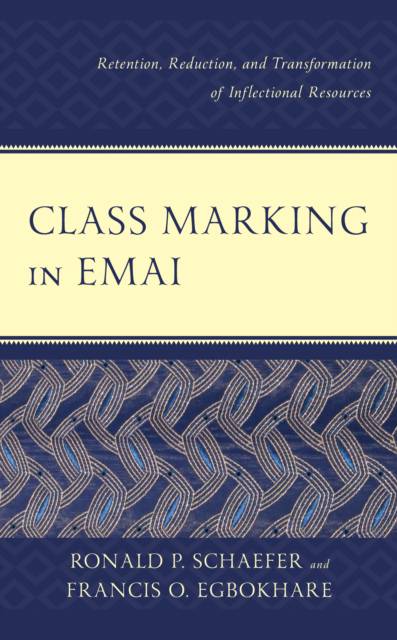
- Afhalen na 1 uur in een winkel met voorraad
- Gratis thuislevering in België vanaf € 30
- Ruim aanbod met 7 miljoen producten
- Afhalen na 1 uur in een winkel met voorraad
- Gratis thuislevering in België vanaf € 30
- Ruim aanbod met 7 miljoen producten
Zoeken
Class Marking in Emai
Retention, Reduction, and Transformation of Inflectional Resources
Ronald P Schaefer, Francis O Egbokhare
Hardcover | Engels
€ 216,45
+ 432 punten
Omschrijving
This book assesses the retention, reduction, and transformation of inflectional nominal morphology in the Edoid language Emai. Putting Emai and its noun class system into a broader cultural and archaeological context of historical language change, the authors explore what it means to be a Benue Congo language with a reduced inflectional system.
Specificaties
Betrokkenen
- Auteur(s):
- Uitgeverij:
Inhoud
- Aantal bladzijden:
- 310
- Taal:
- Engels
Eigenschappen
- Productcode (EAN):
- 9781498542722
- Verschijningsdatum:
- 11/11/2019
- Uitvoering:
- Hardcover
- Formaat:
- Genaaid
- Afmetingen:
- 157 mm x 234 mm
- Gewicht:
- 589 g

Alleen bij Standaard Boekhandel
+ 432 punten op je klantenkaart van Standaard Boekhandel
Beoordelingen
We publiceren alleen reviews die voldoen aan de voorwaarden voor reviews. Bekijk onze voorwaarden voor reviews.







